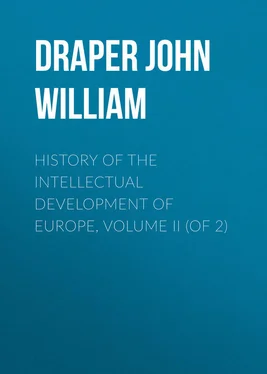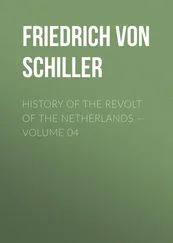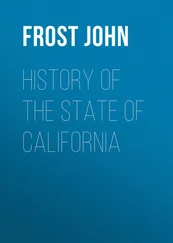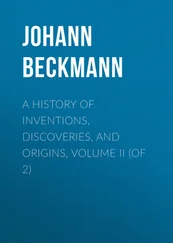John Draper - History of the Intellectual Development of Europe, Volume II (of 2)
Здесь есть возможность читать онлайн «John Draper - History of the Intellectual Development of Europe, Volume II (of 2)» — ознакомительный отрывок электронной книги совершенно бесплатно, а после прочтения отрывка купить полную версию. В некоторых случаях можно слушать аудио, скачать через торрент в формате fb2 и присутствует краткое содержание. Жанр: foreign_antique, foreign_prose, на английском языке. Описание произведения, (предисловие) а так же отзывы посетителей доступны на портале библиотеки ЛибКат.
- Название:History of the Intellectual Development of Europe, Volume II (of 2)
- Автор:
- Жанр:
- Год:неизвестен
- ISBN:нет данных
- Рейтинг книги:4 / 5. Голосов: 1
-
Избранное:Добавить в избранное
- Отзывы:
-
Ваша оценка:
- 80
- 1
- 2
- 3
- 4
- 5
History of the Intellectual Development of Europe, Volume II (of 2): краткое содержание, описание и аннотация
Предлагаем к чтению аннотацию, описание, краткое содержание или предисловие (зависит от того, что написал сам автор книги «History of the Intellectual Development of Europe, Volume II (of 2)»). Если вы не нашли необходимую информацию о книге — напишите в комментариях, мы постараемся отыскать её.
History of the Intellectual Development of Europe, Volume II (of 2) — читать онлайн ознакомительный отрывок
Ниже представлен текст книги, разбитый по страницам. Система сохранения места последней прочитанной страницы, позволяет с удобством читать онлайн бесплатно книгу «History of the Intellectual Development of Europe, Volume II (of 2)», без необходимости каждый раз заново искать на чём Вы остановились. Поставьте закладку, и сможете в любой момент перейти на страницу, на которой закончили чтение.
Интервал:
Закладка:
In the solitude of monasteries there was every inducement for those who had become weary of self-examination to enter on the contemplation of the external world. Herein they found a field offering to them endless occupation, and capable of worthily exercising their acuteness. The mutiny against theology commences among the monks.But it was not possible for them to take the first step without offending against the decisions established by authority. The alternative was stealthy proceeding or open mutiny; but before mutiny there occurs a period of private suggestion and another of more extensive discussion. Persecution of Gotschalk,It was thus that the German monk Gotschalk, in the ninth century, occupied himself in the profound problem of predestination, enduring the scourge and death in prison for the sake of his opinion. The presence of the Saracens in Spain offered an incessant provocation to the restless intellect of the West, now rapidly expanding, to indulge itself in such forbidden exercises. Arabian philosophy, unseen and silently, was diffusing itself throughout France and Europe, and churchmen could sometimes contemplate a refuge from their enemies among the infidel. In his extremity, Abelard himself looked forward to a retreat among the Saracens – a protection from ecclesiastical persecution.
who sets up reason against authority.In the conflict with Gotschalk on the matter of predestination was already foreshadowed the attempt to set up reason against authority. John Erigena, who was employed by Hincmar, the Archbishop of Rheims, on that occasion, had already made a pilgrimage to the birthplaces of Plato and Aristotle, A.D. 825, and indulged the hope of uniting philosophy and religion in the manner proposed by the ecclesiastics who were studying in Spain.
John Erigena falls into Pantheism.From Eastern sources John Erigena had learned the doctrines of the eternity of matter, and even of the creation, with which, indeed, he confounded the Deity himself. He was, therefore, a Pantheist; accepting the Oriental ideas of emanation and absorption not only as respects the soul of man, but likewise all material things. In his work "On the Nature of Things," his doctrine is, "That, as all things were originally contained in God, and proceeded from him into the different classes by which they are now distinguished, so shall they finally return to him and be absorbed in the source from which they came; in other words, that as, before the world was created, there was no being but God, and the causes of all things were in him, so, after the end of the world, there will be no being but God, and the causes of all things in him." This final resolution he denominated deification, or theosis. He even questioned the eternity of hell, saying, with the emphasis of a Saracen, "There is nothing eternal but God." It was impossible, under such circumstances, that he should not fall under the rebuke of the Church.
The conflict begins on transubstantiation.Transubstantiation, as being, of the orthodox doctrines, the least reconcilable to reason, was the first to be attacked by the new philosophers. What was, perhaps, in the beginning, no more than a jocose Mohammedan sarcasm, became a solemn subject of ecclesiastical discussion. Erigena strenuously upheld the doctrine of the Stercorists, who derived their name from their assertion that a part of the consecrated elements are voided from the body in the manner customary with other relics of food; a doctrine denounced by the orthodox, who declared that the priest could "make God," and that the eucharistic elements are not liable to digestion.
Opinions of Berengar of Tours.And now, A.D. 1050, Berengar of Tours prominently brought forward the controversy respecting the real presence. The question had been formularized by Radbert under the term transubstantiation, and the opinions entertained respecting the sacred elements greatly differed; mere fetish notions being entertained by some, by others the most transcendental ideas. In opposition to Radbert and the orthodox party, who asserted that those elements ceased to be what to the senses they appeared, and actually became transformed into the body and blood of the Saviour, Berengar held that, though there is a real presence in them, that presence is of a spiritual nature. These heresies were condemned by repeated councils, Berengar himself being offered the choice of death or recantation. He wisely preferred the latter, but more wisely resumed his offensive doctrines as soon as he had escaped from the hands of his persecutors. The pope privately adopts them.As might be supposed from the philosophical indefensibility of the orthodox doctrine, Berengar's opinions, which, indeed, issued from those of Erigena, made themselves felt in the highest ecclesiastical regions, and, from the manner in which Gregory VII. dealt with the heresiarch, there is reason to believe that he himself had privately adopted the doctrines thus condemned.
Peter Abelard among the insurgents.But it is in Peter Abelard that we find the representative of the insurgent spirit of those times. The love of Heloisa seems in our eyes to be justified by his extraordinary intellectual power. In his Oratory, "The Paraclete," the doctrines of faith and the mysteries of religion were without any restraint discussed. No subject was too profound or too sacred for his contemplation. St. Bernard attacks him.By the powerful and orthodox influence of St. Bernard, "a morigerous and mortified monk," the opinions of Abelard were brought under the rebuke of the authorities. In vain he appealed from the Council of Sens to Rome; the power of St. Bernard at Rome was paramount. "He makes void the whole Christian faith by attempting to comprehend the nature of God through human reason. He ascends up into Heaven; he goes down into hell. Nothing can elude him, either in the height above or in the nethermost depths. His branches spread over the whole earth. He boasts that he has disciples in Rome itself, even in the College of Cardinals. He draws the whole earth after him. It is time, therefore, to silence him by apostolic authority." Such was the report of the Council of Sens to Rome, A.D. 1140.
Perhaps it was not so much the public accusation that Abelard denied the doctrine of the Trinity, as his assertion of the supremacy of reason – which clearly betrayed his intention of breaking the thraldom of authority – that insured his condemnation. It was impossible to restrict the rising discussions within their proper sphere, or to keep them from the perilous ground of ecclesiastical history. The book "Sic et Non."Abelard in his work entitled "Sic et Non," sets forth the contradictory opinions of the fathers, and exhibits their discord and strifes on great doctrinal points, thereby insinuating how little of unity there was in the Church. It was a work suggesting a great deal more than it actually stated, and was inevitably calculated to draw down upon its author the indignation of those whose interests it touched.
Scholastic philosophy, rise of.Out of the discussions attending these events sprang the celebrated doctrines of Nominalism and Realism, though the terms themselves seem not to have been introduced till the end of the twelfth century. The Realists thought that the general types of things had a real existence; the Nominalists, that they were merely a mental abstraction expressed by a word. It was therefore the Old Greek dispute revived. Nominalism and Realism.Of the Nominalists, Roscelin of Compiègne, a little before A.D. 1100, was the first distinguished advocate; his materializing views, as might be expected, drawing upon him the reproof of the Church. In this contest, Anselm, the Archbishop of Canterbury, attempted to harmonize reason in subordination to faith, and again, by his example, demonstrated the necessity of submitting all such questions to the decision of the human intellect.
Читать дальшеИнтервал:
Закладка:
Похожие книги на «History of the Intellectual Development of Europe, Volume II (of 2)»
Представляем Вашему вниманию похожие книги на «History of the Intellectual Development of Europe, Volume II (of 2)» списком для выбора. Мы отобрали схожую по названию и смыслу литературу в надежде предоставить читателям больше вариантов отыскать новые, интересные, ещё непрочитанные произведения.
Обсуждение, отзывы о книге «History of the Intellectual Development of Europe, Volume II (of 2)» и просто собственные мнения читателей. Оставьте ваши комментарии, напишите, что Вы думаете о произведении, его смысле или главных героях. Укажите что конкретно понравилось, а что нет, и почему Вы так считаете.












